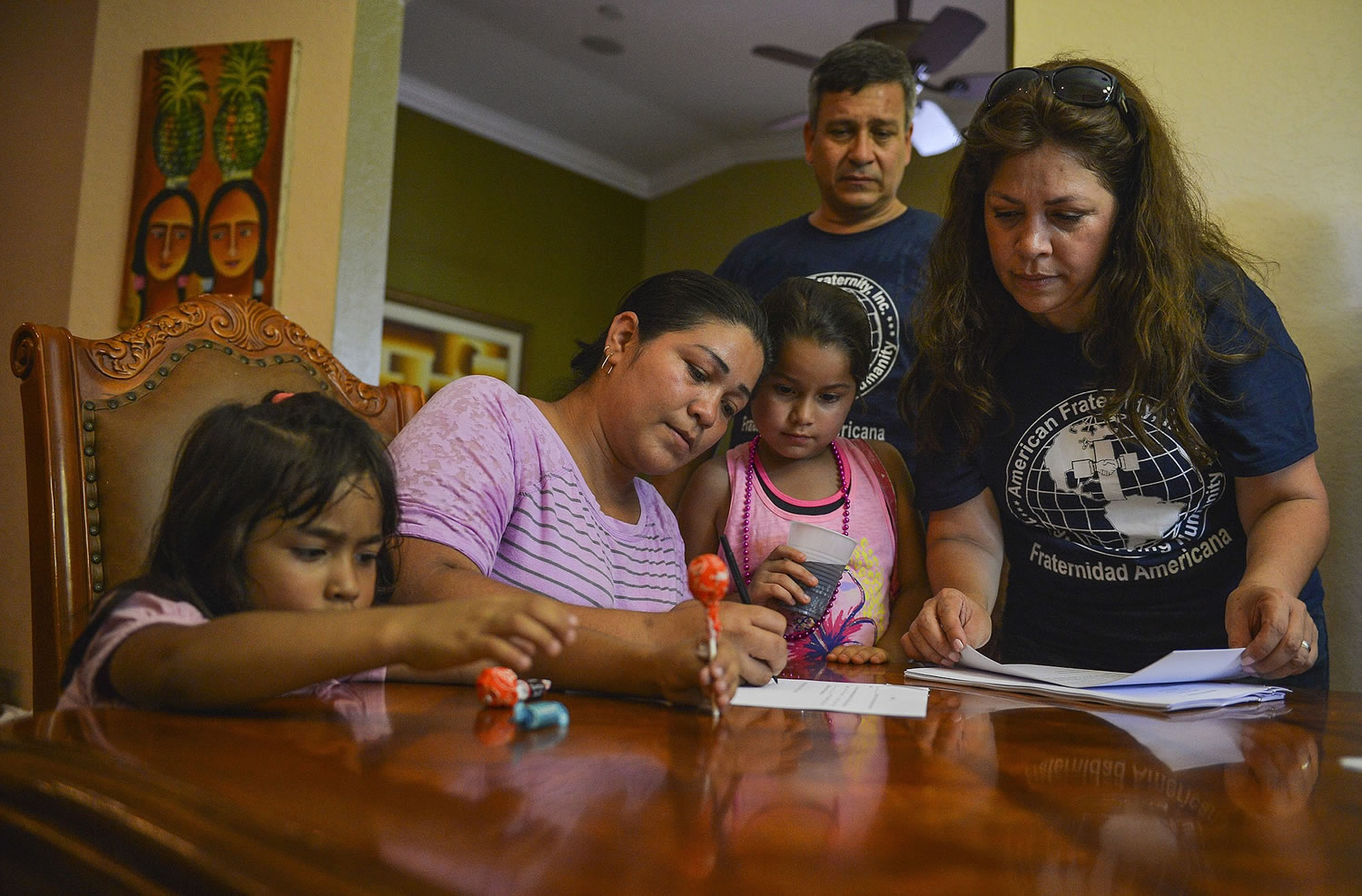“A. To participate in decisions regarding the child’s education . . . “
“B. To grant permission and consent to the child participating in any activity . . . “
“C. To make health care decisions . . . “
“D. To generally do and perform all matters and things . . . “
On this day, “all matters and things” requires driving her van to Sam’s Club to pick up a few hundred boxes of juice to distribute to children’s homes; and then on to Home Depot to buy an air conditioner for a sweltering, two-bedroom house where three children are living with a 24-year-old cousin; and then to Party City to get a pinata so she can host a weekend birthday celebration for a 9-year-old whose father was just sent back to Honduras. She raises money through a small charity, American Fraternity, to buy the supplies but ends up paying for most things out of her own savings, built by the nursing-home business she no longer has time to manage. It is dark by the time she returns to her small office in the Miami suburb of Kendall with the familiar feeling that she has forgotten something, or someone. She looks over her to-do list, but every item is crossed off. She checks her phone for messages, but there are none.
She goes into the back room of the office, a converted house with a bedroom she uses as emergency shelter for immigrant families, and begins sorting through her alphabetized files of children. There are volunteer guardians like her in immigrant communities across the United States who are responsible for a few children or even a dozen, but she knows of no one else like her, with 812. “Samantha. Izaithell. Zaraya. Gabriel,” she says, searching through photographs, trying to find the one whose needs she might be forgetting. “Sharon. Nathalia. Ashley from Illinois,” she continues.
She had taken over guardianship for the first two children in 2009 as a favor for a Peruvian friend. The woman had been detained during a neighborhood immigration raid, and her American-born daughters had been referred to foster care. Who better to care for them, the friend had asked, than Sandigo, who had been separated from her own parents at 17 while fleeing war in Nicaragua and then become an activist for immigration reform? “I’m sorry, but I’m not sure I can,” Sandigo told her, thinking first about her own responsibilities: two biological daughters entering their teens, a husband, a business of small nursing homes, a working farm on the border of the Everglades. But then Sandigo went to see the two girls in a group home across the city, where one had started seeing a counselor for depression and the other had begun skipping classes at her new school. “How can we not help?” she asked her husband, and so they signed the paperwork for their first two children, and five years later it has become 810 more.
“La gran madre,” is what some of those children call her. The great mother.
“A hidden anomaly in the system,” is what a spokeswoman for the Florida Department of Children and Families calls her, explaining that federal and state authorities usually leave guardianship decisions to parents and don’t monitor guardians unless there is a complaint of abuse or neglect.



